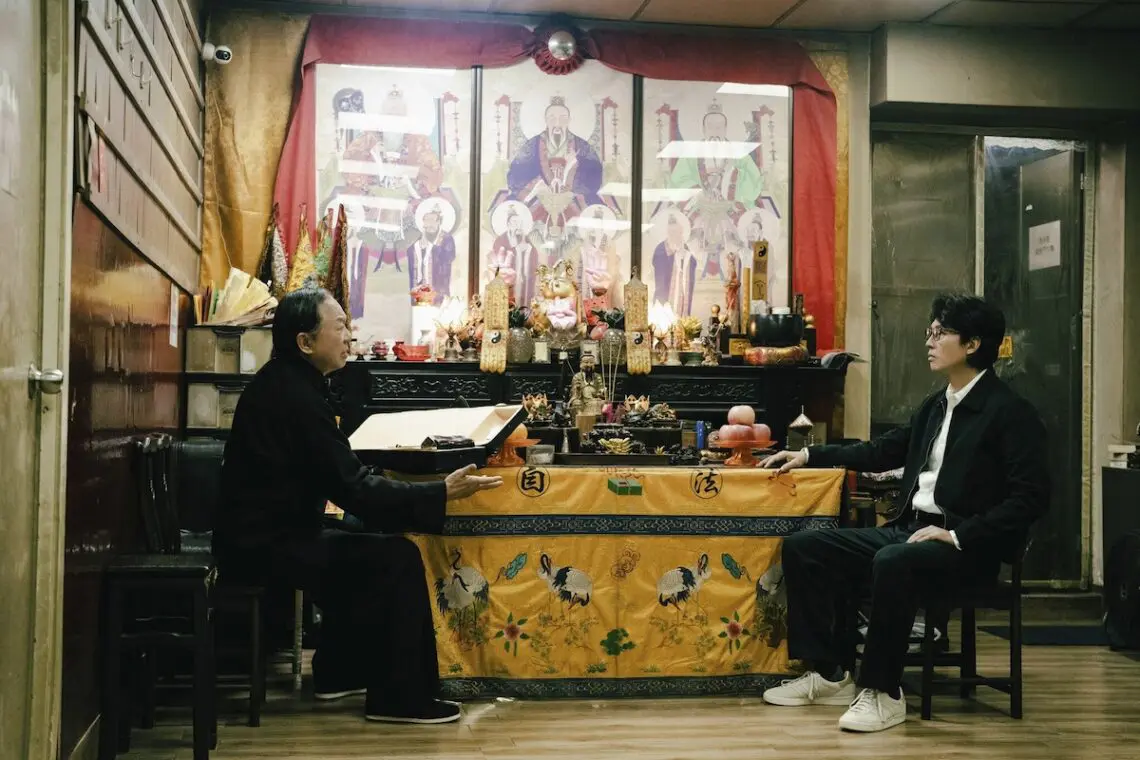A journey through life and death: “The Last Dance”
How do you craft a touching, life-affirming film about death that resonates with audiences worldwide? Rising Hong Kong filmmaker Anselm Chan answers this question elegantly in The Last Dance. In this poignant drama, a financially-strapped former wedding planner and a strict Taoist priest become unexpected partners in the funeral business, showcasing the profound human experiences within.
Dynamic duo: Dayo Wong and Michael Hui
Led by Cantonese comedy legends, Dayo Wong (“Table for Six”) and Michael Hui (“Security Unlimited,” “Where the Wind Blows”), “The Last Dance” masterfully blends humor and pathos. Wong and Hui’s almost straight-faced performances add gravitas to a narrative that is as heartwarming as it is insightful, delving deeply into the rituals and sentiments surrounding final farewells.
Hong Kong traditions on the big screen
Opening on November 9 locally and expanding to the UK and Ireland on November 15, this film is set to make waves internationally. Chan’s exploration of Hong Kong’s funeral traditions, particularly the Taoist ritual of “breaking hell’s gates” where a priest with a fiery sword frees souls from hell, informs a broader audience about these unique practices. Included in the First Intangible Cultural Heritage Inventory of Hong Kong, this ritual’s depiction offers viewers an authentic glimpse into deeply-rooted cultural traditions.
From romcoms to dramas: Chan’s cinematic evolution
Anselm Chan, who made a name with the zany romcom “Ready or Knot” and its sequel “Ready or Rot” (2023), steps into a more nuanced realm with “The Last Dance.” The mature themes and the intricate portrayal of rituals mark Chan’s growth as a filmmaker, tackling heavier subjects with a sensitive touch.
Plotline and character arcs
The clash of new and old
Dominic Ngai, played by Wong, finds himself in dire straits after his wedding planning business collapses during the pandemic. His girlfriend’s uncle, Ming (Paul Chun-pai), offers him a half-share in a funeral business. However, Dominic’s modern, profit-driven ideas clash with those of his new partner Master Man Kwok (Hui), a Taoist priest revered for his impeccable adherence to tradition. As Dominic markets flashy ceremonies and merchandise, Master Kwok’s stern adherence to respect for the dead creates dramatic tension.
Family struggles and personal growth
The heart of the story extends beyond the professional sphere, touching on personal and familial themes. Widower Man, despite his community respect, faces challenges at home. His son Ben (Tommy Chu), expected to follow in his footsteps, lacks the necessary faith and passion. Meanwhile, his daughter Yuet (Michelle Wai), a paramedic, struggles with a dead-end relationship and a complex relationship with her father due to traditional beliefs. Yuet’s narrative, highlighting gender roles in Taoism, adds layers to the film, questioning traditions and their place in modern society.
Emotional crescendos
Dominic’s journey into the world of funeral services is not just about the logistics of dealing with the dead but also deeply intertwined with helping those left behind. Wong’s portrayal of Dominic’s interactions, particularly with Man’s family and clients, inject warmth and a natural ease into the film. One standout scene involves Ms. Yan (Rosa Maria Velasco), a mother who, against all odds, preserves her deceased son’s body in hopes of a medical miracle. Dominic’s decision to help, even against Kwok’s instructions, and the ensuing tender care, paints a moving picture of empathy and respect.
Crafting a visual and thematic masterpiece
The visual storytelling in “The Last Dance” is enhanced by Anthony Pun’s polished cinematography and the well-thought-out production design by Yiu Hon-man. Lee Pik-kwan’s costume designs also significantly contribute to the film’s authentic feel, grounding its narrative in the vibrant cultural tapestry of Hong Kong’s Hung Hom funeral district.
Behind the scenes chemistry
It’s thrilling to witness Wong and Hui sharing the screen for the first time since 1992’s “Magic Touch.” While the film’s tone is primarily serious, there are delightful moments when their characters relax and reflect on life and the beyond. The supporting cast, especially Michelle Wai as the conflicted daughter, also deliver compelling performances that enrich the story’s emotional depth.
Chan’s film not only delves into the business of death but also invites viewers to ponder life’s greater questions. The juxtaposition of traditional rituals with modern practices encourages dialogue on how cultural heritage can evolve or maintain its essence in today’s society.
Share the journey
Leave a comment, share this review on social media, or follow us for more updates on upcoming films. Engage with us in celebrating the richness of film culture and keep the conversation going!

 Italian
Italian







